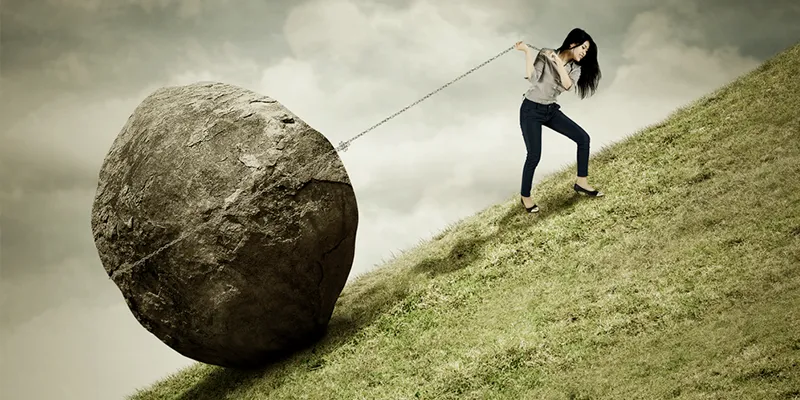How women are changing workplace dynamics for the better
While women are now standing up against every disadvantage that was an accepted norm earlier, their support system needs to evolve and become more voval for their equal representation in the workplace.

Women empowerment is one of the prime concerns that our society faces at present. The idea, like all compelling ideas, captivates the fascination of everyone – with a broader section of men and women coming out in its favour, while others denying it right at the onset.
A few people disregard women empowerment, asserting that any form of empowerment serves against the idea of ‘equality’. I believe that this argument is flawed, as it does not take the broader viewpoint into consideration. Let’s try and understand why.
Why our society needs women empowerment?
Even in the today’s progressive, tech-driven world, men outnumber women significantly at workplaces on a global level. The situation in developing countries, such as India, is even more unsettling. As per stats made available by International Labour Organization, for every 100 men in the workforce in India, there were roughly about 35.107 working women by late nineties. This figure peaked at 36.784 in 2005, before taking a nosedive to 26.809 in a span of seven years. The 2017 figure of roughly 27 working women against 100 working men, by any stretch of imagination, cannot be termed as an achievement for our society.
The essence of women empowerment lies in increasing the female representation in the social order to bring forth a level playing field.
When Oprah Winfrey took to the stage at the Golden Globe Awards this year, she shared her awe-inspiring story as a little girl watching Sidney Poitier, the first black actor to win the Academy Award for Best Actor, and how his achievement motivated her back in 1964. In her iconic speech, she explained that Poitier was celebrated like no other black man had ever been before, and described eloquently the importance of his journey for someone completely unrelated to him otherwise.
As humans, we need inspiration to identify our goals, to drive ourselves towards them, and then to compare our performance with our benchmark – in life, as well as in workplaces. But when there’s disparity to the extent that exists in the workplaces today, we can’t expect the apple to fall very far from the tree. Bearing this in mind, the wonders that women are making happen at present are simply exceptional.
Harbingers of change

Though the current social environment and perception need to change, it is obvious that the most basic change, i.e., the change in terms of attitude, has to come from within. Thankfully, women are now standing up against every single disadvantage that was an accepted norm earlier. In my personal experience, when I go for business meetings, the pressure comes in from all directions. One statement that I frequently encounter in meetings is "Can you send your husband?” I used to send my manager initially, but now I go all by myself. If I face a situation where I don’t feel comfortable, I simply speak up. It’s important to know that you can’t please everyone, and above everything else, you shouldn’t try to.
The reason why women often consider themselves inferior, in society and in workplaces, is because they’ve been made to believe that way over an extended period of time. The lack of communication in the society has helped propagate this notion, and since women are physically less powerful in comparison to their male counterpart, we started believing that we are powerless when compared to men in general.
Today, the growing communication has helped us recognise the marvels that women are bringing about on a global level, and is enabling both men and women realise that no gender is inferior to the other.
Although sexism clearly pervades the workplace, the increasing number of women entrepreneurs will help change the status quo and bring forth a much-needed understanding of a woman’s perspective. The workforce at any organisation has to be diverse in order to make a difference overall. Focussing on equality, however, does not mean ignoring the basic needs of women employees, such as ensuring a safe, secure, and comfortable work environment. Urgent leaves, and dropping off employees home when they work late are all ways to keep the women in the workforce happy. I still feel that we need more women leaders. I encourage every woman to participate in business meetings as frequently as men do. There shouldn’t be any prejudices and biases towards women in any meetings or seminars.
Challenges in the way

When I started my business, I had nightmares about its success fading away because of limited funding. Pitching your ideas to people can be pretty daunting at times, and asking them for money more so. One suggestion that I have for women entrepreneurs, homemakers, and working-class women is to have sincere and passionate belief in whatever they do. That can make your innovation and work extraordinary and magical.
Here are some of the other insights into women-centric professional challenges that I’ve gleaned from my own experiences to help you in your entrepreneurial journey:
Delegating responsibilities: Women are expected to take on multiple roles in life, especially in India, and those who don’t end up doing so face social stigma for not ‘being a good woman’. I feel distribution of work is very important to lead an organised life. You should delegate some responsibilities to others, both professional and personal, and take out at least one hour or two daily for exercising and meditation. In today’s era, where we are addicted to our gadgets, it’s very important to take time out for yourself. Don’t wear more hats than you ideally can.
If you’re not being taken seriously: Even though the larger picture is changing in India and the business space is no longer single-handedly dominated by men, the reality is that raising capital is more difficult for women-owned firms. Any suggestion given by a female professional is also not perceived, by and large, as an expert advice. Forming groups during business meetings and supporting your female colleagues can help solve this problem.
I remember attending a seminar on Women’s Day last year in Bengaluru, where a female CEO described her experience while working for an MNC. During business meetings, her advice was not taken seriously and her presentations were not paid much attention to by her colleagues. The pin-drop silence that existed during other presentations was rare for her, if not completely non-existent. One day she got really exasperated and started the presentation by saying “Good Morning” at the top of her voice. Being heard and getting heard is important, and sometimes raising your voice can help.
Limited mobility: Every woman has two careers – a homemaker and a working woman. These careers get automatically assigned to her, but I have never heard a man say that his profession is homemaking. When you have these two roles to play simultaneously, you are stuck in a kind of a maze where you run around trying to reach every destination at the same time. This limits your mobility. It’s essential to prioritise what you can realistically achieve in a day. Every day I come to office with a list of tasks, and I always categorise them according to their priority levels. Knowing what priority each task has keeps me sorted for the day.
Coping with the fear of failure: There is no one in this world, man or woman, who has never failed. It is important to acknowledge the fact that failure is not only inevitable, but also integral to your growth journey. One of the most revered figures in India, APJ Abdul Kalam, failed to become an IAF fighter pilot – his sole objective since childhood. But that failure enabled him to become so much more significant to the nation and its citizens. You mustn’t fear failures. Rather, you should embrace them. Keep yourself in high spirits regardless of the situation and always be driven towards your goal. It will help you evolve, both personally and professionally.
From a macro perspective, platforms such as WEQ, NITI Aayog, Association of Lady Entrepreneurs of India (ALEAP), and Sheroes have unlocked networking, mentoring, and learning opportunities for women entrepreneurs to grow their businesses. There is still a need for more such platforms where women entrepreneurs do not have to face prejudice. A wider network of investors should welcome women-led initiatives and help them acquire the opportunities that ensure women empowerment in workplaces does not remain only a vision on paper, but become a realised dream.
(Disclaimer: The views and opinions expressed in this article are those of the author and do not necessarily reflect the views of YourStory.)







